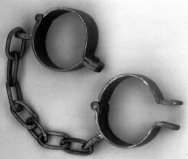
Destitution, and the desperation it breeds, drives many parents to give their children to other families. The abandoned child is supposed to do minor household chores for the new family in exchange for lodging, food and schooling, but too often the child becomes a domestic slave subject to physical and sexual abuse. In Haiti these children are called restaveks.
Haiti’s child-slavery problem was exacerbated by the earthquake in January, a catastrophe that killed more than 300,000 and left countless children homeless, orphaned and even more vulnerable to absorption into domestic slavery.
According to UNICEF, before the quake 300,000 children in Haiti were slaves. Jean-Robert Cadet, author of Restavek and a former restavek himself, believes that number will double unless the international community intervenes -- for instance, by driving Haiti toward universal education, which, he believes, will ensure that every child is in school and not in servitude.
Haiti’s child slavery is a form of human trafficking (even though the children usually remain in Haiti), and human trafficking is a worldwide problem. The United Nations Office on Drugs and Crime (UNODC) defines human trafficking as “an act of recruiting, transporting, transferring, harboring or receiving a person through a use of force, coercion or other means, for the purpose of exploiting them. Every year, thousands of men, women and children fall into the hands of traffickers, in their own countries and abroad. Every country in the world is affected by trafficking, whether as a country of origin, transit or destination for victims.”
Every country plays a role in this detestable crime. Even the United States, “the land of the free.”
Human trafficking is modern-day slavery. The UNODC estimates that there are 2.5 million slaves in the world today, but that's a conservative figure. Kevin Bales, author of Disposable People, and the International Justice Mission (IJM) place the number at over 27 million. The IJM states, “More children, women and men are held in slavery right now than over the course of the entire trans-Atlantic slave trade.”
According to the UNODC, 79% of slaves are forced into prostitution while 18% are forced to work as laborers. The organization admits, however, that this last statistic may be skewed by bias. That may be the case. But what’s clear and undeniable is that with more than 27 million humans in bondage at this very moment, slavery is thriving in the 21st century.
How much progress have we truly made?
Sources:
 RSS Feed
RSS Feed